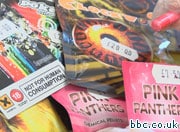There has been a reduction in “health and criminal harms” in Edinburgh since a ban on the sale of just one type of ‘legal high’ came in, according to a new report.
The report, written for the Health, Social Care and Housing Committee at Edinburgh City Council, also notes a reduction in anti-social behaviour.
A blanket ban on New Psychoactive Substances (NPS), formerly known as legal highs, came into force across the UK on 26 May this year under the Psychoactive Substances Act.
Serious crime
Edinburgh implemented a temporary ban on a particular NPS called ethalphendrate after observing a spike in “bizarre” behaviour and extreme violence.
The report highlights that before the ban, Police Scotland noticed that many violent and anti-social incidents involved people who seemed to be under the influence of NPS.
“The most serious of these”, it notes, “resulted in an officer being stabbed, a siege and a suicide”.
Hard to get
The Royal Edinburgh Hospital also recorded an increase in admissions related to NPS and challenging behaviour in the patients admitted.
One year on from the ban, the report concludes that the introduction of the temporary banning order had a “significant impact on the availability and use” of the NPS.
“This resulted in a reduction in a range of health and criminal harms relating to drug use”, it says.
Blanket ban
The UK-wide Psychoactive Substances Act outlaws “any substance which is capable of producing a psychoactive effect in a person who consumes it”, with a few exceptions, including alcohol and caffeine.
Under the Act, those involved in the supply or production of the drugs face a prison sentence of up to seven years.

